Top Climate Change Risks: Precipitation, Heat, Drought
Use this page to learn how climate change is affecting people in Georgia.
Climate Change Risk Ratings for Georgia
People in Georgia will experience especially increased risks from precipitation, heat, and drought due to climate change over the next 30 years. These risks, through 2050 and beyond, may change depending on how much we reduce emissions in the near future.
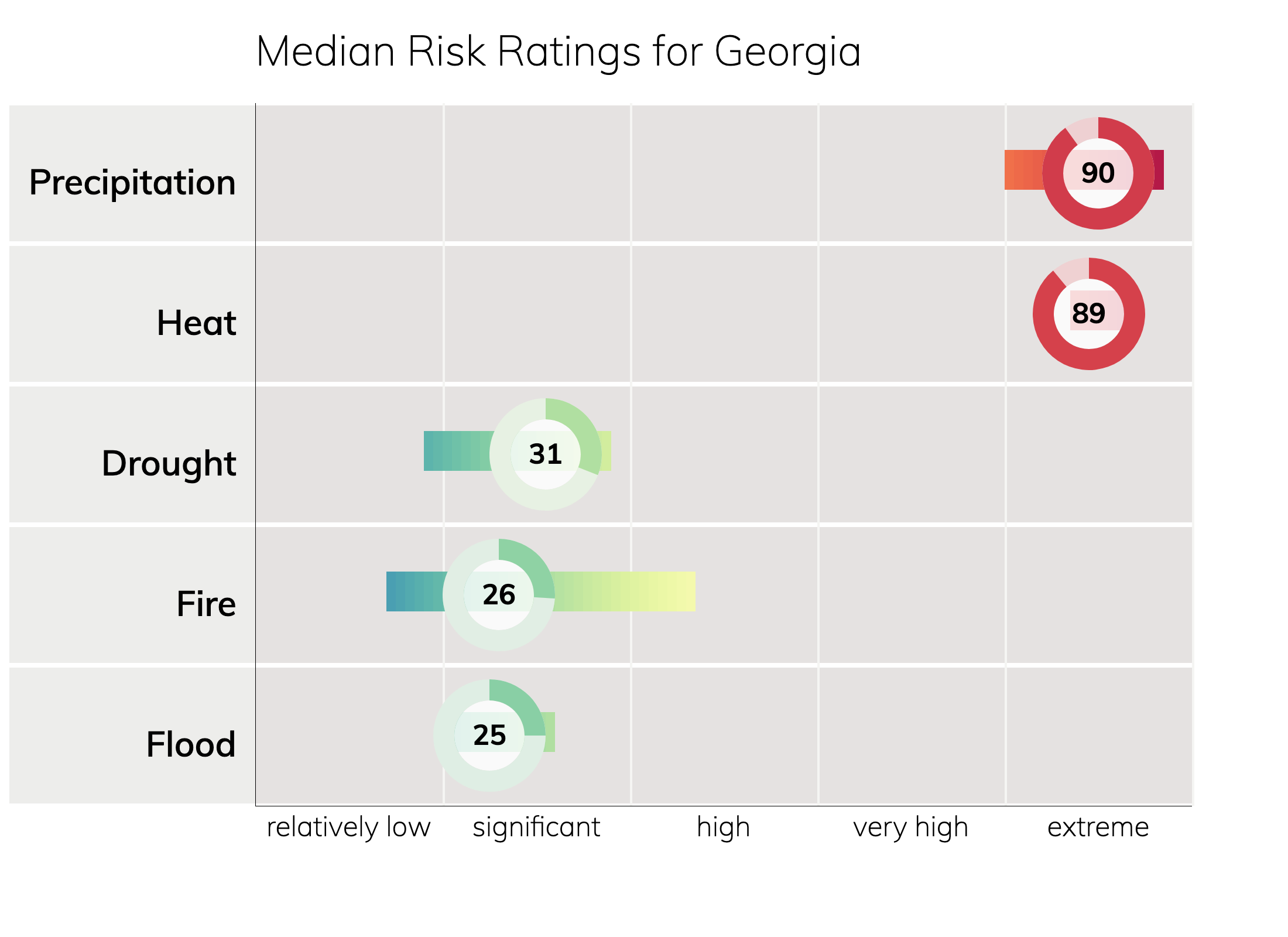
Get an Instant Risk Assessment
Climate Risks for Cities in Georgia
Of these top cities in Georgia, the city with the highest overall risk is Atlanta. The city with the lowest overall risk is Albany.
- For heat, Gainesville has the lowest risk and Albany has the highest risk.
- For precipitation, Savannah has the lowest risk and Gainesville has the highest risk.
- For drought, Valdosta has the lowest risk and Gainesville has the highest risk.
- For fire, Atlanta has the lowest risk and Savannah has the highest risk.
- For flood, Valdosta has the lowest risk and Gainesville has the highest risk.
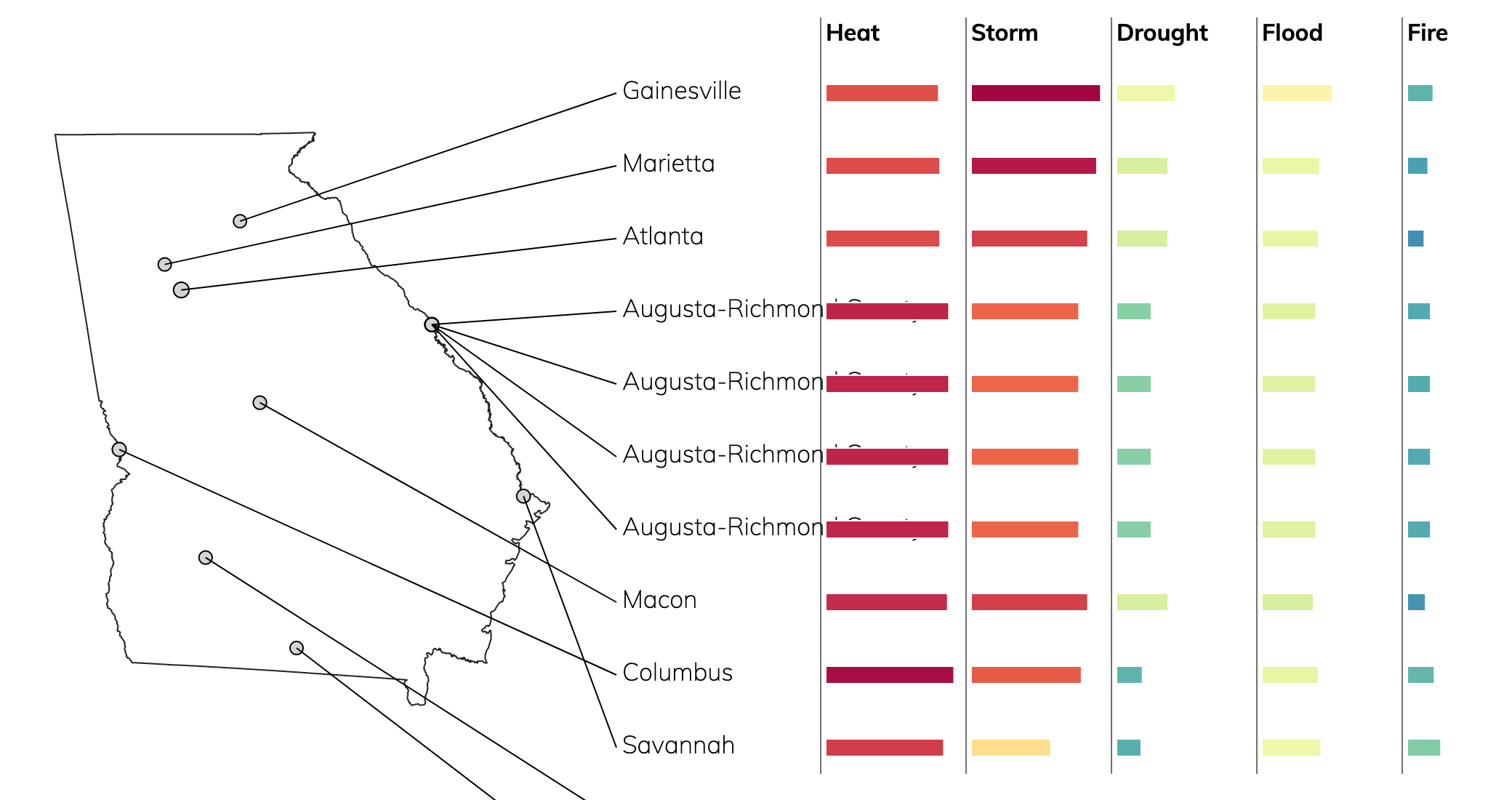
Comparing Georgia and Other States
Among the lower 48 states, Georgia's highest ranking is #8 for storm risk.
Rhode Island and New York rank highest for storm risk Nevada and Arizona rank lowest for storm risk
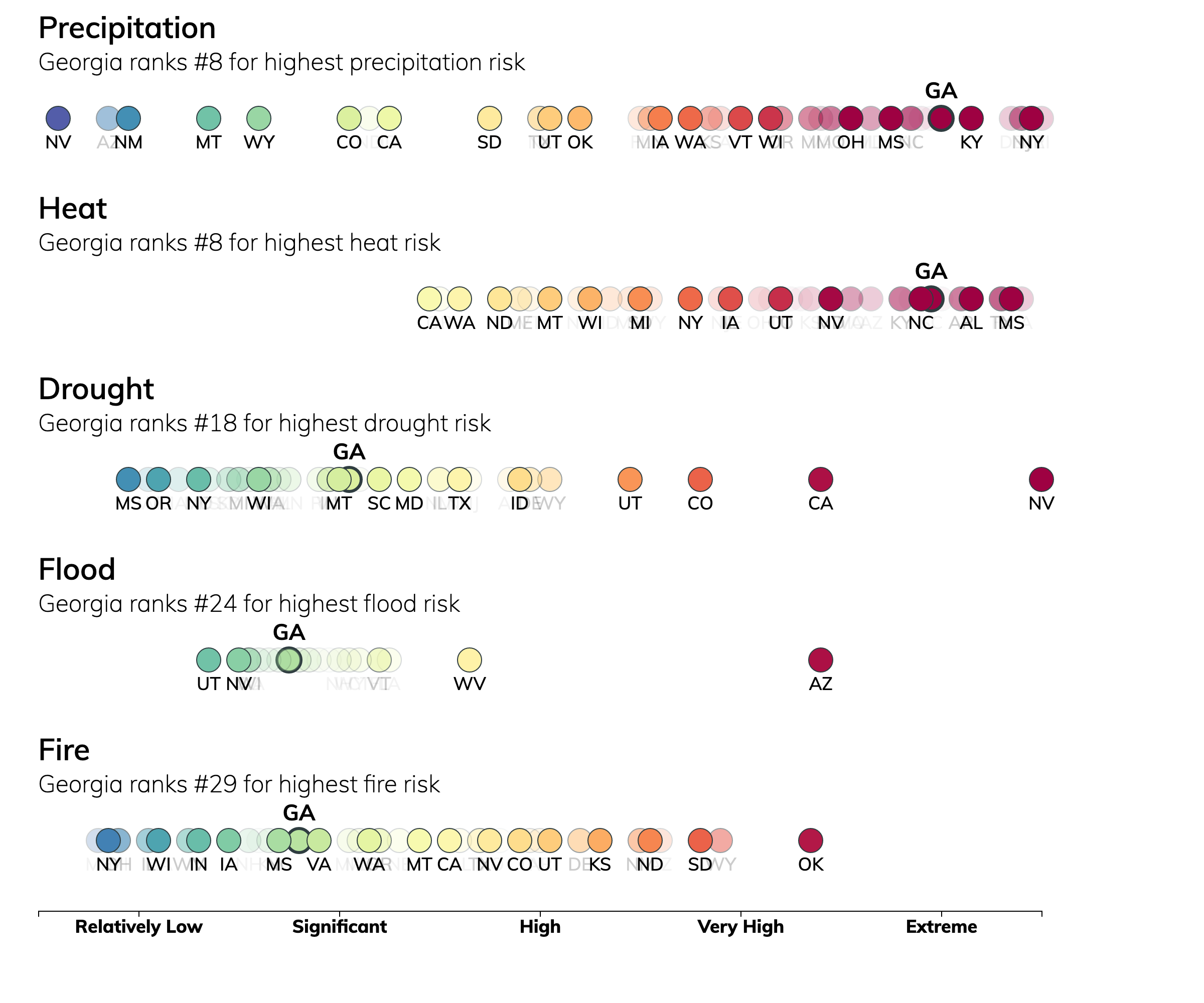
Precipitation Risk in Georgia with Climate Change
To measure precipitation risk, we look at the amount of precipitation that falls in 48-hour periods exceeding a location-specific threshold, and how many times this happens per year. A precipitation threshold is based on the top 1% of rainiest days per year for a location.
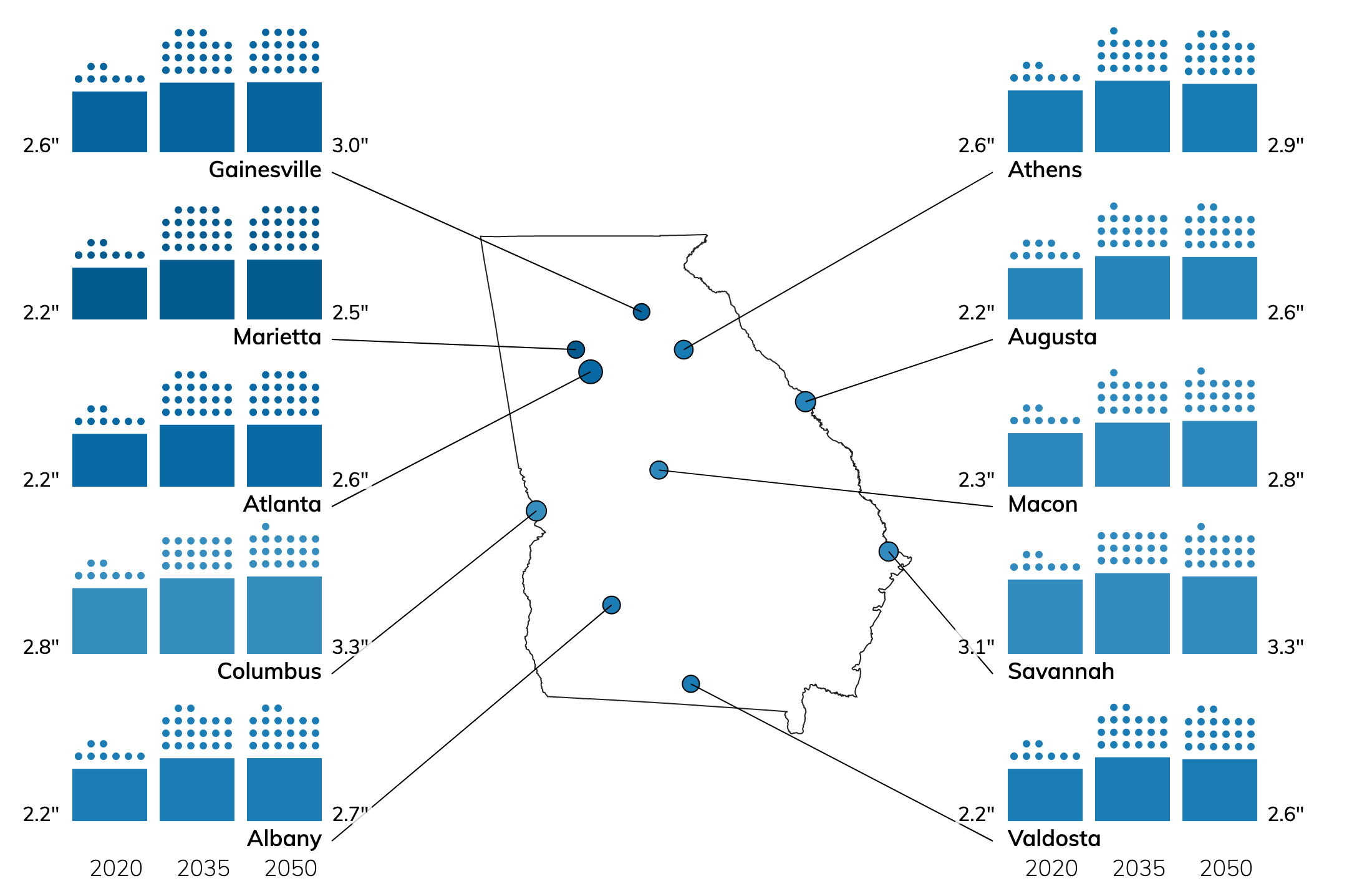
Heat Risk in Georgia with Climate Change
An extremely hot day in Georgia is about 96ºF. This is based on historical maximum temperatures on the top 2% of days in an average year.
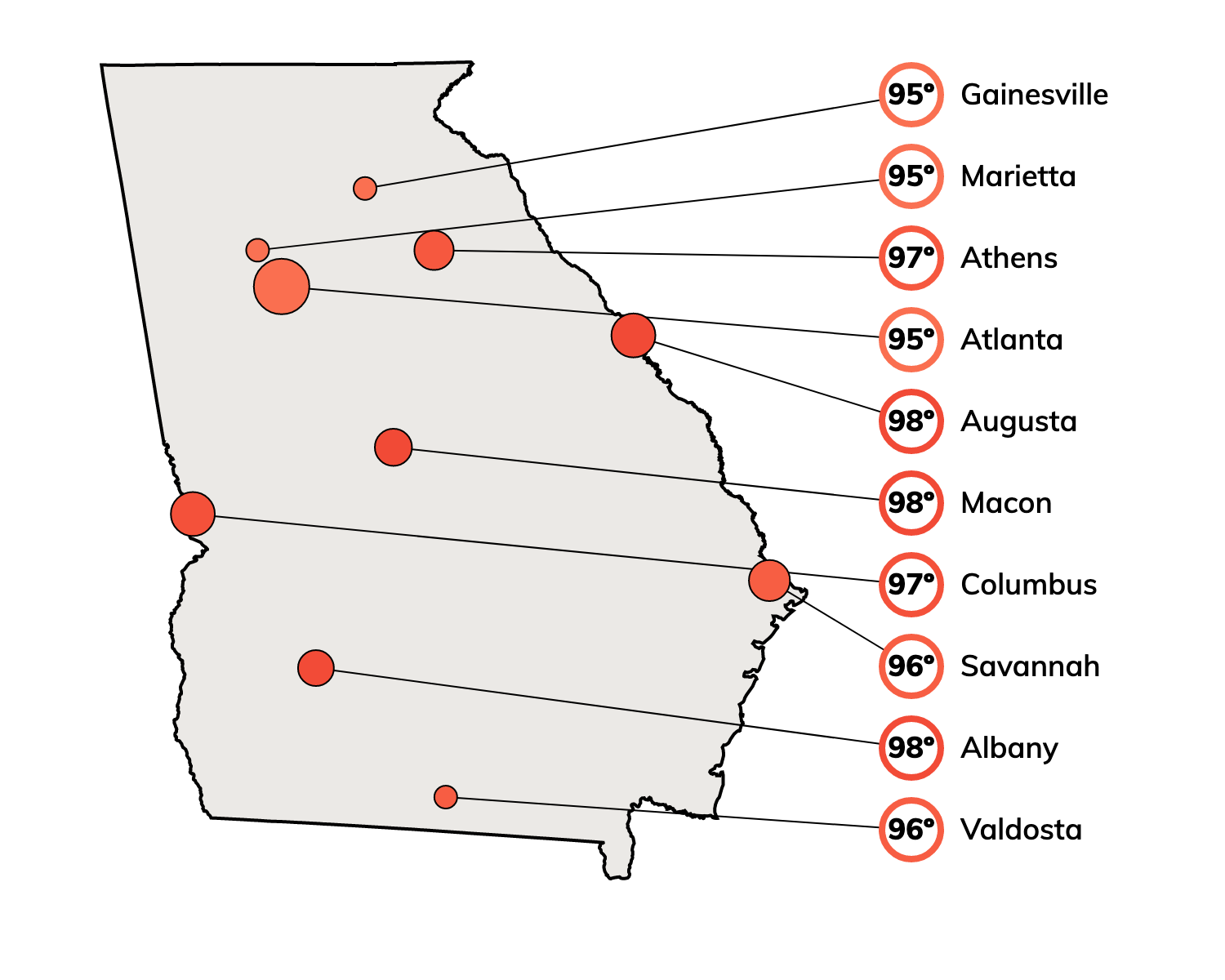
The frequency of very hot days is increasing. On average, someone in Georgia will experience about 43 extremely hot days in 2050.

Drought Risk in Georgia with Climate Change
Drought risk is based on water stress, which is a projection of how much of the water supply will be taken up by human demand.
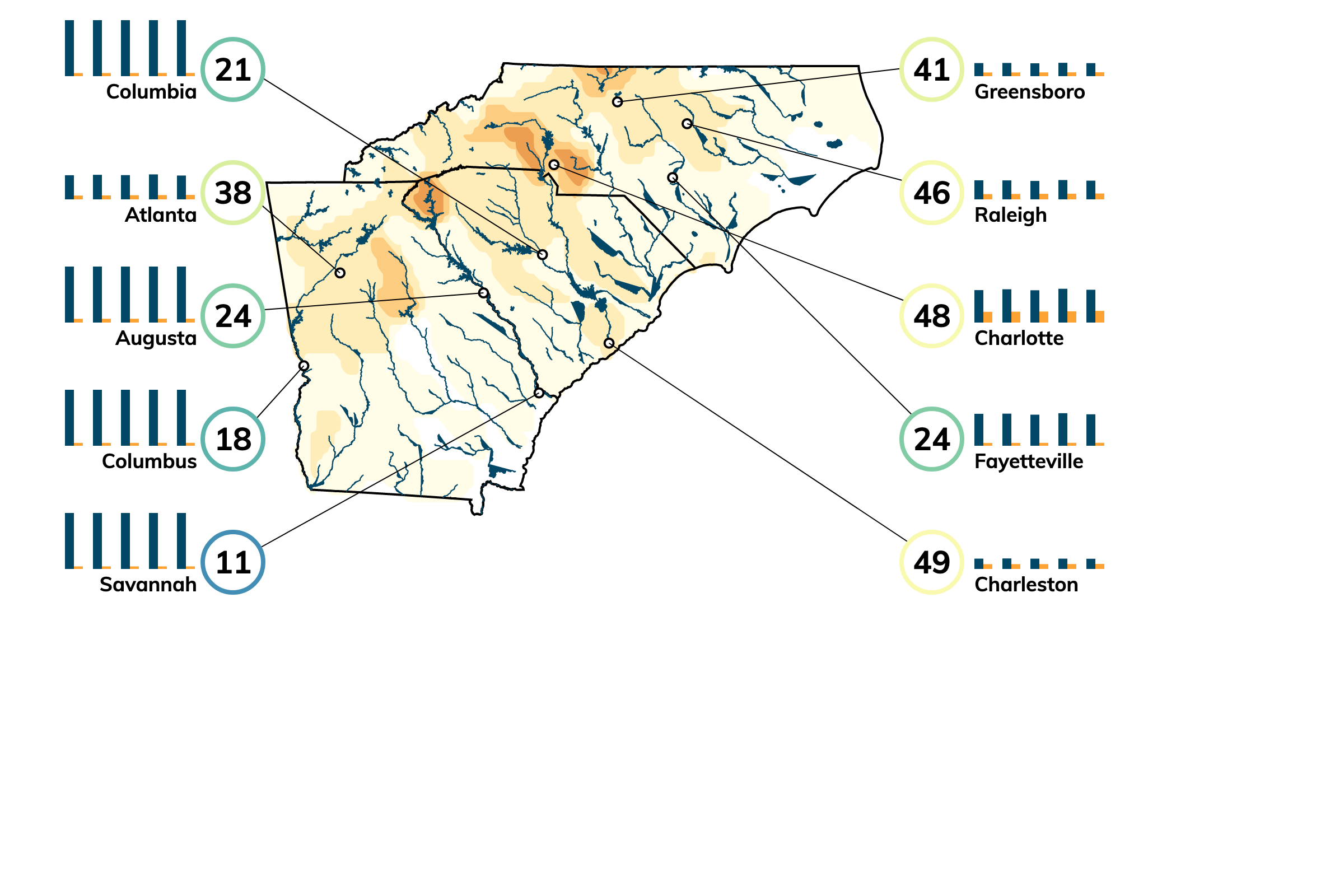
Fire Risk in Georgia with Climate Change
Locally, fire risk depends on proximity to vegetation, the type of vegetations and other landcover in the area, and topography. On a given day, fire risk is greatly increased in the presence of a red flag warning, when heat, low humidity, and strong winds converge.
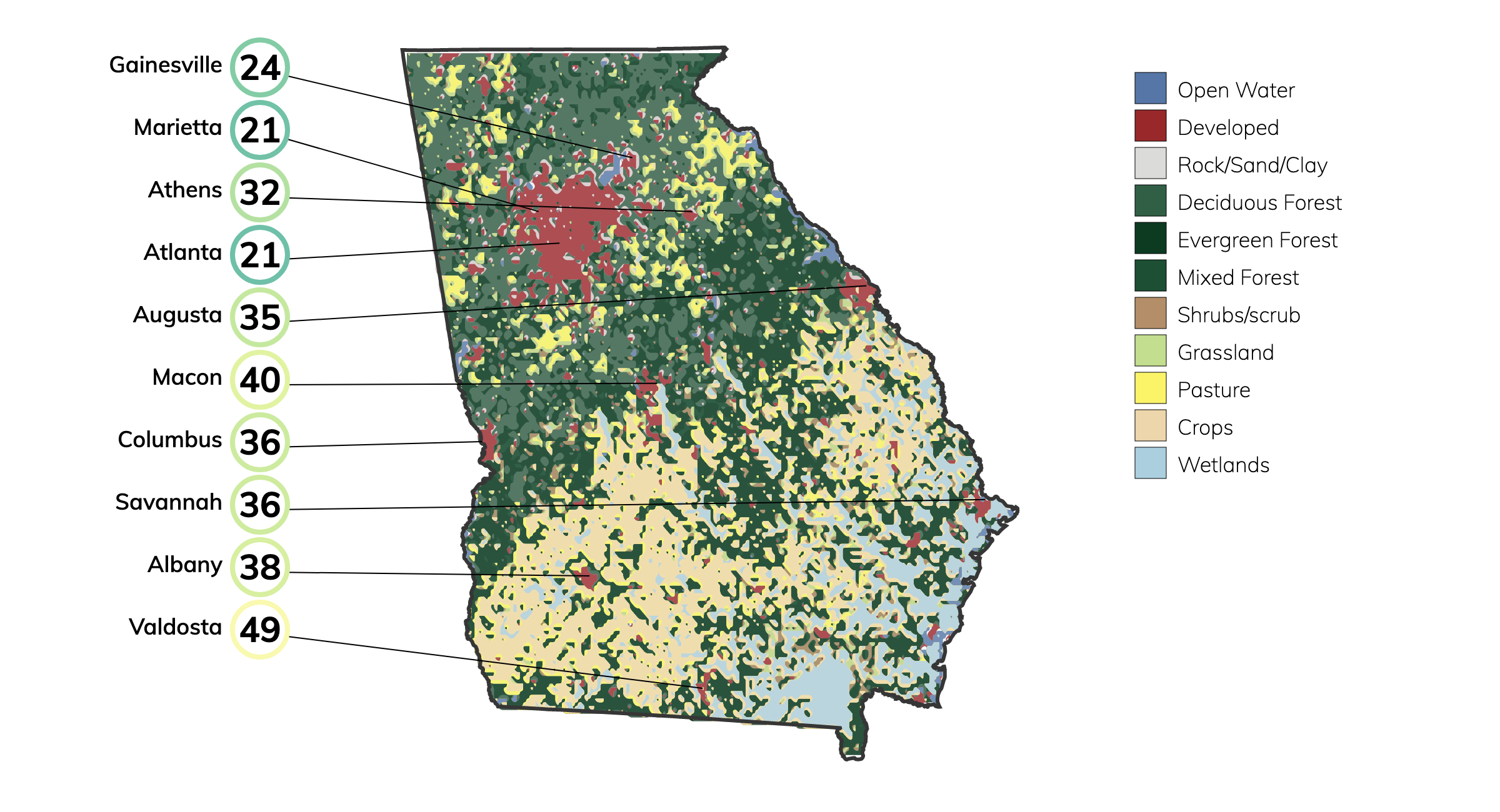
Flood Risk in Georgia with Climate Change
Coastal flood hazards include storm surge, when strong winds push water to shore, and rising sea levels due to climate change. The rate of sea level rise varies along the coast. Rising seas contribute to greater instances and spread of high-tide flooding, when high tides inundate land, and greater potential storm surge depths.

How can we prevent climate change and protect our homes and communities?
Mitigating climate change—by eliminating our emissions into the atmosphere and reducing our strain on the environment—and adapting to our changing planet are both vital to our well-being.
Understand Risks
Check your address and get a free report describing risks to your property and in your area.
Protect Homes and Communities
Check our free report for tips on protecting your home from hazards.
Find Balance